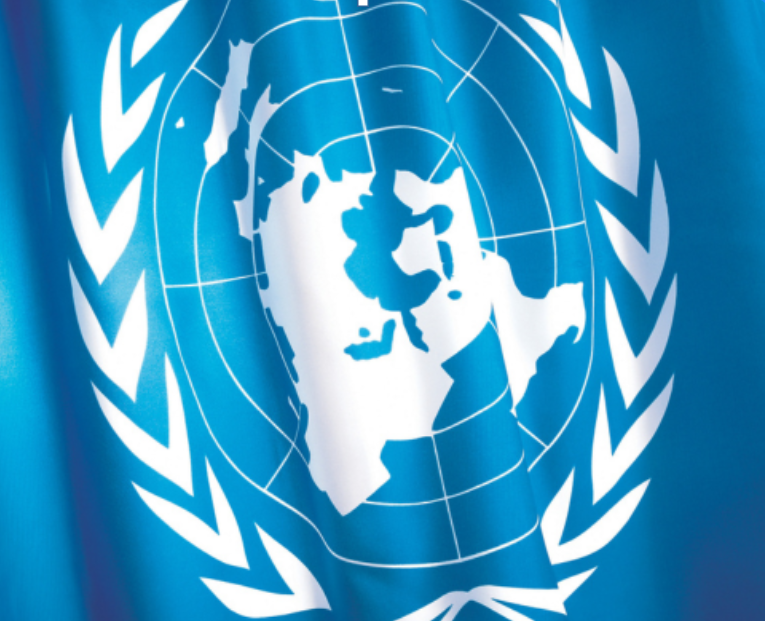EXECUTIVE TRAINING PROGRAMMES

Understanding the UN Mechanisms
Duration: 5 days
Format: In-person or remote
This course provides a deep dive into the United Nations mechanisms, detailing their functions, interactions with international entities, and key issues. Participants will explore international law and human rights frameworks.
Module 1: Understanding UN Mechanisms.
Participants will learn about Human Rights Council (HRC) mechanisms, including Special Procedures and the Universal Periodic Review, mastering UN terminology and communication skills to effectively engage in UN sessions.
Module 2: Practical Skills and Role-Play.
Through role-play and theoretical learning, participants will develop key skills in research, stakeholder engagement, and reporting, essential for effective advocacy within the UN system.
Module 3: Advocacy and Partnership Skills
This module focuses on building lasting partnerships with UN bodies and enhancing advocacy skills to initiate meaningful changes and foster global dialogues on human rights issues.

Strategic Pathways to UN ECOSOC Accreditation
Duration: 5 days
Format: In-person or remote
This programme is designed for NGOs, civil society organizations, and other international stakeholders seeking ECOSOC consultative status. The course provides practical guidance on the accreditation process, including how to meet the criteria, submit applications, and navigate the decision-making process.
Module 1: United Nations ECOSOC Fundamentals.
By the end of this course, participants will be equipped with the tools and strategies to successfully navigate the UN ECOSOC accreditation process and strengthen their advocacy efforts within the UN system.
Module 2: Creating a UN Profile and Application Questionnaire's.
By the end of this course, participants will be equipped with the tools and strategies to successfully navigate the UN ECOSOC accreditation process and strengthen their advocacy efforts within the UN system.
Module 3: 1-1 mentorship during application process.
By the end of this course, participants will be equipped with the tools and strategies to successfully navigate the UN ECOSOC accreditation process and strengthen their advocacy efforts within the UN system.

Human Rights, Conflict Intervention and Peacebuilding
Duration: 5 days
Format: In-person or remote
This three-day professional certificate course enhances participants' understanding of human rights protection, conflict intervention, and peacebuilding in transitional regions. The course covers debates and conventions around international human rights and their link to societal conflicts, along with intervention methods such as preventive diplomacy, mediation, and peacekeeping. Outcomes: Participants will gain insights into key human rights instruments, develop practical skills in mediation and peacebuilding, and learn to evaluate and enhance related projects.
Module 1: Diverse Teaching Methods.
The course incorporates lectures, video documentaries, brainstorming, experience sharing, readings, and self-study. Participants will complete a supervised personal research project on a relevant topic. This program is suited for individuals in or aspiring to roles in public policy, government, military-defense, UN agencies, international development, humanitarian aid, civil society organizations, and correctional services.
Module 2: Understanding Human Rights and Conflict.
Participants will gain an understanding of the history, key instruments, application, and benefits of international human rights norms. They will also learn about various approaches to conflict intervention and peacebuilding, including practical challenges based on familiar case studies. The course emphasises the linkages between human rights, governance, and conflict intervention methods.
Module 3: Practical Skills and Evaluation.
Participants will develop skills in conflict mediation, resolution, and peacebuilding. They will learn to evaluate human rights, conflict intervention, and peacebuilding projects, identifying their strengths and weaknesses, and suggesting feasible policy-relevant remedies.

Inclusive Narratives
Duration: 5 days
Format: In-person or remote
This program equips content creators and journalists with skills to address human rights issues for marginalized groups such as minorities, refugees, and the LGBTQ+ community. Participants learn to create inclusive, ethical content, counter hate speech, and manage tech projects and funding, focusing on UK practices for re-humanizing language and AI in social contexts. The course includes workshops and expert mentorship for practical application.
Module 1: Ethical Content Creation
Participants will develop content promoting diversity and inclusivity, learn to differentiate hate speech from free speech, and use case studies to enhance ethical journalism.
Module 2: Practical Skills Development
Attendees engage in hands-on exercises to lead tech collective action projects, secure funding, and examine AI's ethical use in social innovation.
Module 3: Global Engagement
This module prepares participants for global collaboration, focusing on UK practices in re-humanizing language and AI to enhance global human rights efforts.

Minority Rights
Duration: 5 days
Format: In-person or remote
This course focuses on the human rights issues impacting minority groups globally, covering international legal frameworks, UN conventions, and human rights laws. It includes practical case studies on minority rights challenges and solutions.
Module 1: Understanding Minority Rights
Learn about minority rights within political, social, and economic spheres, and their support through international law. Explore the roles of education, employment, and healthcare in fostering local stability and enhancing minority participation in democracy.
Module 2: Combating Discrimination and Promoting Inclusivity
Discuss legal protections against hate speech, community engagement, media literacy, and establish effective reporting mechanisms to monitor and address minority rights violations.
Module 3: Advocacy and Implementation Strategies
Engage in advocacy and strategic planning for peacebuilding, focusing on implementing minority rights initiatives and enhancing international cooperation for local peace efforts.

Gender Mainstreaming and Women Participation
Duration: 5 days
Format: In-person or remote
This course trains participants to promote gender equality and empower women in local governance through gender mainstreaming and female representation strategies. It emphasizes the importance of integrating gender perspectives into policies and programs and the critical role of monitoring and evaluation.
Module 1: Introduction to Gender Mainstreaming
Learn about gender mainstreaming's role in enhancing fairness and inclusivity in local governance. The session includes practical case studies and discussions about the challenges and opportunities in implementing these practices locally.
Module 2: Female Representation and Gender Mainstreaming
Explore ways to reduce gender disparities in political roles and improve women’s leadership through quotas, mentorship, and training. Learn strategies for integrating gender perspectives into local decision-making and engaging the community to support women leaders.
Module 3: Gender Equality and Monitoring and Evaluation
Focus on policies and strategies that promote gender equality, establish clear goals and monitoring systems for gender initiatives, and create actionable plans for local councils. The module includes a case study on effective gender mainstreaming management.

Organisational Development: Partnerships, Transparency and Ethics
Duration: 5 days
Format: In-person or remote
This course delves into the roles of partnerships, transparency, and ethics in organizational development. Participants will learn about ethical decision-making, how to forge development partnerships, and how to enhance transparency in organizational structures, with case studies illustrating best practices and governance challenges.
Module 1: Partnerships
Participate in a workshop on "Establishing Effective Partnerships" to understand partnership dynamics, including trust, reciprocity, and mutual benefits. Learn about inclusive communication, consensus building, and decision-making strategies to strengthen collaboration and resolve conflicts.
Module 2: Transparency, Concepts and Principles
Explore the importance of transparency and ethics in organizations through sessions on open governance and ethical culture. Engage in self-assessments and discussions to learn about tools for enhancing organizational transparency and accountability.
Module 3: Ethics
This module examines the characteristics of ethical and unethical organizational cultures, exploring causes of misconduct and strategies for building strong ethical frameworks. Gain practical tools for assessing and improving organizational ethics and transparency.

Public Policy Making and Governance
Duration: 5 days
Format: In-person or remote
Module 1: Using Public Policy
Participants will explore the 17 United Nations Sustainable Development Goals (SDGs) to assess their country's and region's performance. The focus will be on utilizing public policy to address policy failures and enhance performance in areas with significant gaps.
Module 2: Sustainable Development and Development Diplomacy
This module examines sustainable development policies and development diplomacy in governance enhancement. Participants will study international frameworks, policy tools, and collaborative strategies to foster social, economic, and environmental sustainability.
Module 3: Application in Political and Social Contexts
In this module, participants will apply what they've learned to real-world political and social settings. Through case studies, discussions, and simulations, they will hone skills to manage complex governance situations and tackle policy implementation challenges.

Conflict Mediation, Negotiation and Diplomacy
Duration: 5 days
Format: In-person or remote
This course enhances skills in mediation, negotiation, and diplomacy, crucial for resolving conflicts and advancing peace processes. Participants will use real-world case studies and practical tools to manage negotiations effectively in high-stress situations, build consensus, and spearhead diplomatic efforts.
Module 1: Contending Approaches to Conflict Prevention
Participants will enhance their skills in complex negotiations and diplomatic interventions to improve outcomes in peacebuilding and conflict resolution.
Module 2: Context-relevant Models of Conflict Analysis
This module covers various conflict analysis models, detailing their uses, strengths, and limitations. Key models include Johan Galtung’s Four Stages of Conflict Analysis, the Intersecting Conflict Pyramids Model, the Onion Ring Model, the ABC Model, and the Conflict Tree Model.
Module 3: Practical Strategies
Using case studies, this module examines conflicts among diverse social identity groups in heterogeneous countries and between grassroots communities or social groups and the government.

Negotiation and Diplomacy
Duration: 5 days
Format: In-person or remote
This course aims to enhance the capabilities of foreign policy practitioners, diplomats, and key national and international figures in negotiating across different scenarios to secure national interests effectively. It also addresses how diplomatic efforts can improve negotiation outcomes for mutual benefits.
Module 1: Understanding the Principles
Participants will learn fundamental negotiation principles applicable across various scenarios, including thorough preparation, trust building, interest over position bargaining, necessity of compromise, open-minded flexibility, reciprocity, active listening, and effective emotion management.
Module 2: Preparatory Guidelines
This module enhances participants' skills in diplomacy, focusing on negotiation, effective communication, relationship building, and advancing strategic interests. It prepares participants to represent their governments skillfully in international negotiations.
Module 3: Skills and Strategies
Participants will explore negotiation challenges, both predictable and unpredictable, and learn specialist strategies to overcome them. Through scenarios involving negotiations with adversaries, the module teaches best practices for achieving favorable, win-win outcomes in tough negotiations.